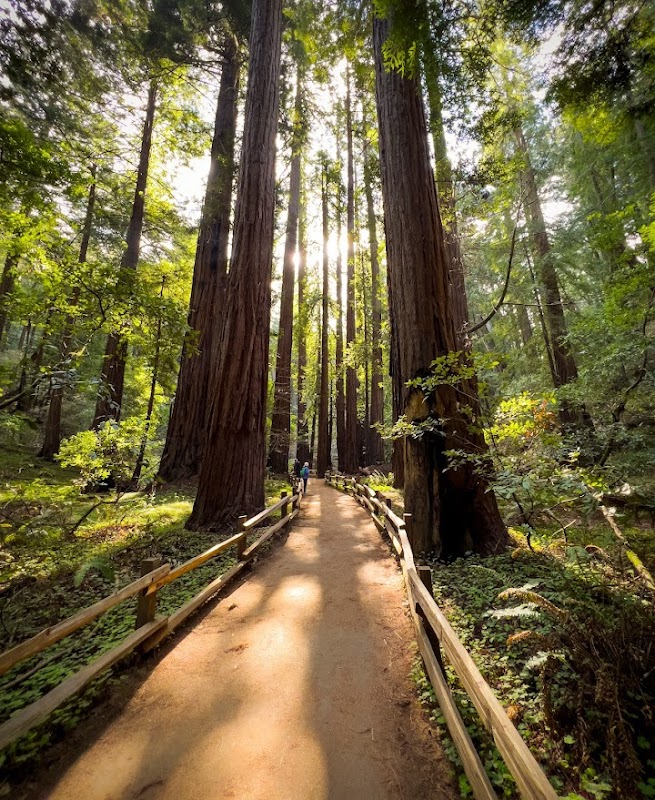
Navigating the Bay Area Book Festival: Berkeley’s Literary Adventure
The Bay Area Book Festival in Berkeley offers a dynamic celebration of literature that invites readers to explore new ideas in an engaging urban setting. Perfect for book lovers and curious newcomers alike, the festival combines thought-provoking events with a lively fair, creating a practical yet inspiring adventure in the heart of Berkeley.
Wear Comfortable Shoes
The festival covers multiple venues scattered across downtown Berkeley with lots of walking between locations. Supportive footwear will keep you comfortable through long days.
Stay Hydrated
Bring a refillable bottle; water stations are available but busy. Keep sipping regularly to stay alert and refreshed during panels and fairs.
Use Event Maps and Schedules
Download the festival app or pick up printed maps to plan your route efficiently. It helps avoid missing your favorite authors or workshops.
Arrive Early for Popular Panels
Events with renowned authors fill up quickly. Get there early to secure seating and avoid standing for extended periods indoors.
Navigating the Bay Area Book Festival: Berkeley’s Literary Adventure
Every spring, Berkeley transforms into a vibrant hub where stories leap from pages and readers gather with eager anticipation for the Bay Area Book Festival. This event draws book lovers from across California and beyond, unfurling a dynamic blend of author talks, panel discussions, workshops, and a lively book fair that fills downtown Berkeley’s bustling streets. The festival's layout bridges open plazas and intimate venues, guiding visitors through spaces alive with literary energy and diverse voices.
Set just a short walk from the iconic UC Berkeley campus, the festival feels like a cultural hike—easy to navigate but densely packed with moments that cross genres and ideas. Attendees can cross from a panel on emerging authors to a children’s storytelling session in minutes, making it easy to tailor your experience whether you’re a casual reader or a dedicated bibliophile.
Planning your visit means thinking like an explorer. The festival typically spans two days in late April or early May, when the Bay Area’s mild spring climate encourages outdoor wandering without the summer crowds. Prepare for varied terrain—flat city streets peppered with outdoor tents, staircases inside libraries and theaters, and gathering spots where you can pause and reflect over a coffee or a freshly purchased book.
Hydration is key, especially as you navigate these literary paths under steadily warming skies. Bring a refillable water bottle; festival vendors often provide refill stations but lines can be long. Footwear should be comfortable and sturdy—Berkeley’s historic streets are mostly even, but the event’s size and duration guarantee plenty of walking.
The festival invites engagement with stories fiercely alive, shaping conversations on identity, culture, politics, and creativity. Local bookstores and publishers offer a unique chance to discover voices you won’t find on bestseller lists. Food trucks and cafes nearby fuel your stamina between activities and give a taste of the city’s eclectic culinary scene.
Whether you arrive solo or with friends, the Bay Area Book Festival offers a practical adventure in ideas and community. Map your must-see events, budget time for serendipitous discoveries, and come ready to engage with the fierce spirit of literary exploration—one that respects literature as a living, breathing force pushing forward the culture.
Nearby Trips
All Adventures
Boat Charters
Water Activities
Adventures near Berkeley, California
Discover the unique and memorable adventures that make Berkeley, California special.
Frequently Asked Questions
How do I get to the festival most efficiently?
Public transit is the best option. BART to Downtown Berkeley or Ashby station puts you within walking distance of all venues. Parking is limited and expensive nearby, so avoid driving if possible.
Are the festival events suitable for children?
Yes. The festival includes a dedicated children’s area with storytelling, crafts, and interactive sessions designed for younger audiences. Family-friendly programming runs throughout the weekend.
Can I purchase books directly at the festival?
Absolutely. Many independent local bookstores and publishers sell books at the festival fair, often with author signings and special deals.
What should I bring besides books and water?
Bring a small backpack or tote for books and essentials, your smartphone with the festival app, portable charger, and layers to adapt to changing indoor/outdoor temperatures.
Are the panel discussions recorded or streamed?
Some panels are streamed or recorded for later viewing, but not all. Check the festival’s official website for current digital offerings.
Are there local places to eat during the festival?
Yes, Berkeley offers a vibrant food scene a short walk from festival locations, including food trucks on site and cafes serving artisanal coffee and fresh meals.
Recommended Gear
Supportive Walking Shoes
Essential for all-day comfort on city pavements and walking between venues.
Reusable Water Bottle
Keeps you hydrated during warmer spring days and throughout long event sessions.
Portable Charger
Helpful to keep your phone and festival app powered for maps and schedules.
Light Layers
Prepare for variable spring temperatures—something to shed or wear as needed.
Local Insights
Hidden Gems
- "Rose Garden at the Berkeley Hills for quiet reflection"
- "The Garnett-Powers House, an architectural landmark nearby"
- "Campus labyrinth walk near the law school offering calm between events"
Wildlife
- "Urban-adapted birds such as hawks circling overhead"
- "Squirrels darting through trees on the UC Berkeley campus"
History
"Berkeley's long-standing intellectual culture underpins the festival’s ethos, with roots in activism and free speech movements tied to the university and community since the 1960s."
